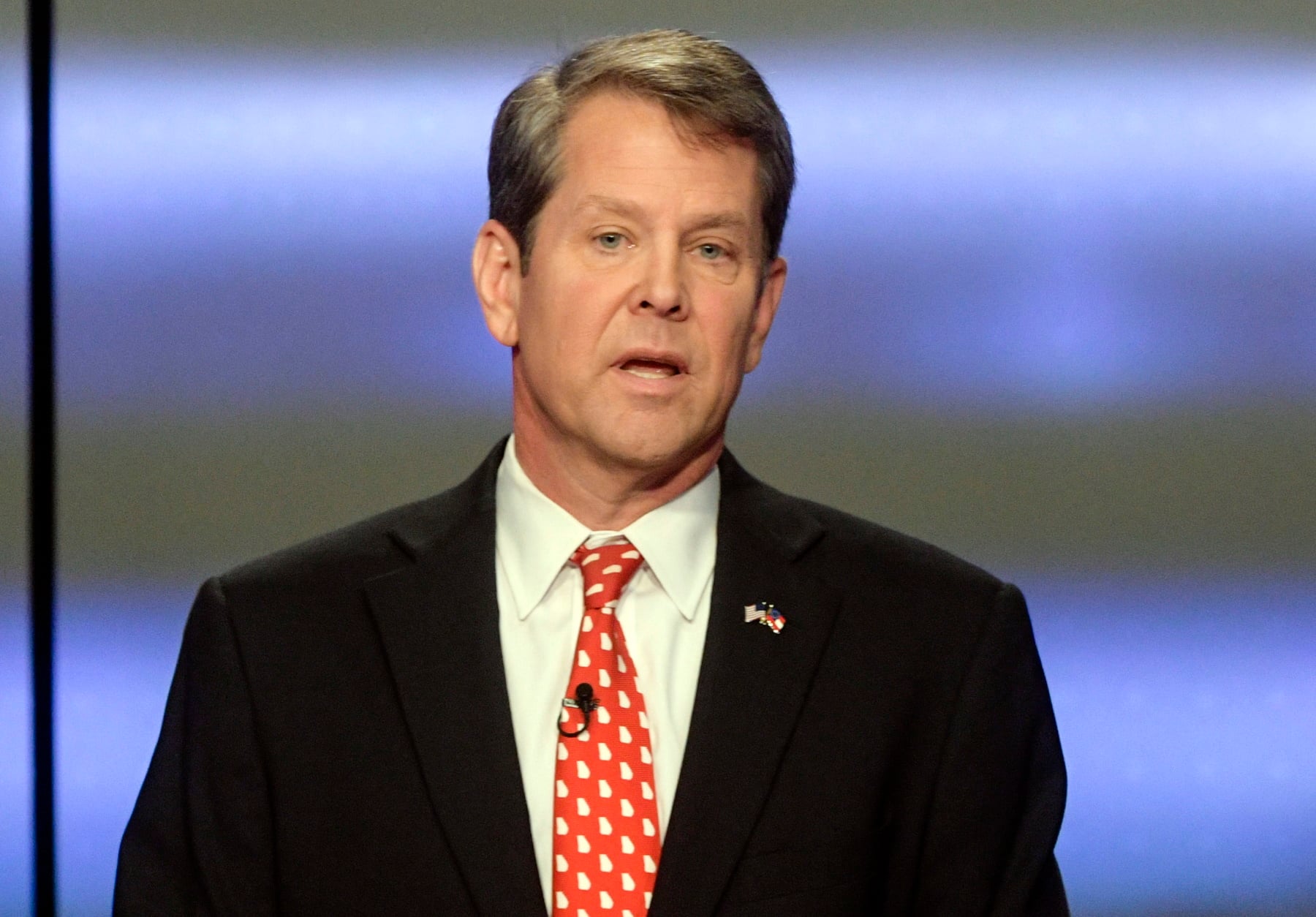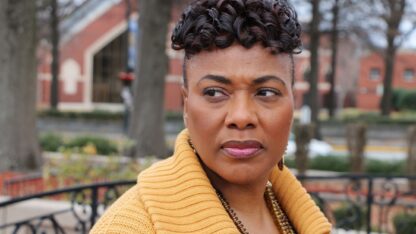Gov. Brian Kemp is defending his partial shelter-in-place order, applicable statewide to those with “increased risk of complications” from the coronavirus, including the elderly and those undergoing cancer treatment.
In an interview with WABE, he outlined where he thinks Georgia is and why he doesn’t think a broader restrictive order — as many other states, countries and cities including Atlanta and Savannah have instituted — is necessary right now.
Why limit the shelter-in-place order?
Well, I felt like we had the right response from a state perspective. I mean, look, I understand that cities are dealing with a little bit different situation than a whole state. Certainly, the city of Atlanta has been much different from a lot of the other 600-plus cities around Georgia. And, you know, I’ve been supportive of what the local communities are doing, but also felt like we had a lot of Georgians that were not paying attention and not doing the things that the president and the vice president’s task force and myself and the nation’s governors had been asking.
But we’re also continuing to follow the data on this and looking at a lot of different ramifications, not only from the virus, but economically and other things. And that all factored into my decision-making process.
We’re continuing to keep all options on the table as we move forward. But I’ve told people that, you know, our citizens are the ones that are going to stop this virus. It is not going to be a vaccine this year. It may be next year if it comes, but it’s not going be a cure that’s going to happen, I don’t believe, in the next month or two. So we’ve got to do our part as Georgians to help, you know, flatten the curve and get through this. But we also have to think about the social and economic disadvantages of complete, total lockdown in our state.
Younger, healthy people who are not included in the shelter-in-place order can carry the virus and spread it. So why not put stronger restrictions in place on younger, healthier people as well?
Well, because like I said earlier, I didn’t feel like it was the appropriate time to do that. Our citizens have to be the solution to this, not the problem. Like in Athens, they passed a shelter in place, and I was sent Facebook videos over the weekend of large groups of people … and then California has a shelter in place and the beaches were packed yesterday.
So to all these different problems. We have to take reasonable measures, the elderly, the medically fragile or the ones that are really getting hammered by this virus. So I feel like it’s better for us to focus on that group to keep them safe.
What needs to happen in your mind before you consider a wider restriction? Is it more cases, more deaths?
You know, we’re continuing to watch the data. … The more we test, the more that line is going to go up. It’s going to go up exponentially. It wouldn’t surprise me if we were at 2,000 cases by the end of the week, or 4,000.
We know that the virus has been here long before anybody even realized, that we’ve had health care professionals that were doing flu and strep tests back in December and January with no results, and they couldn’t figure out what was wrong with their patients. And I’m convinced that that was coronavirus.
It’s not like we’re going to stop this virus. We’ve got to mitigate it. We’ve got to deal with it. We’re going to have a lot of our people that get infected. We’ve seen that in other countries, whether they sheltered in place or not. But the people that are getting really hammered and killed by this virus are the elderly and medically fragile. And that’s who we’re focused on. And I think if you watch our lines, and I hope this continues, if you watch the data, the number of our cases is going to go up exponentially. But right now, the death rate continues to be fairly flat. And that’s why we’re focused on jumping on the nursing homes where we’ve had problems in every state in the country.
So when you talk about the numbers going up as testing ramps up, would a statewide restriction help that at all?
You know, based on the data that I’ve been looking at, I don’t know that that would have made that big a difference. And plus, you’re not going to know that until two weeks from now. So we’ve taken some pretty strong measures in our state over the last couple of weeks on social distancing and closing schools and a lot of people doing the right thing.
But we’ve got to prepare for what we know is coming. No matter whether you shelter in place or you do nothing, you’re still going to have, 60-70 % of your population that’s going to end up getting this virus because it’s here now. It’s airborne now. And that’s just a fact that we’re dealing with. What we’ve got to do is make sure we protect the elderly population. They are the ones that end up needing to go to the hospital. They’re the ones that need ventilators and respirators in hospital beds. And if we can keep that number low and keep those folks from ever going to the hospital, it’ll help our medical facilities deal with the crisis in lessening the blow that we’re going to have on our hospitals and serve all the people in our state.
Does the Department of Public Health have the staff to handle the new responsibilities of enforcing the partial shelter-in-place order and to order closing bars and nightclubs? Will they be needing any additional resources to handle the responsibilities?
No, we can handle that. We have a lot of resources in state government, as you can imagine. There’s a lot of state agencies that aren’t, because of the teleworking and other things, that aren’t quite doing what they were. You think about the Georgia State Patrol. There’s not as many people on the roadways. So they’re not having to deal with as many wrecks and as many traffic violations.
But again, you know, I’m not trying to put our state into a police state. We’re just trying to get people to abide by the rules, to protect the health of our public. And that’s what we’re expecting them to do. And if there’s some that don’t want to do that, then we’re going to make an example out of them. And I’m sure the local governments will be doing that as well.
Dr. Anthony Fauci, director of the National Institute of Allergy and Infectious Diseases, has said that he thinks we should “be overly aggressive and get criticized for overreacting.” Do you feel like we’re overreacting right now?
No, I feel that we’re in a great spot right now. As you can imagine, I’ve got some people that are mad because they don’t think I went far enough. I got other people that are mad because they think I went too far.
Based on all the information that I’ve got … I believe we’ve taken the right actions at the right time. And we’ll continue, you know, we still have some arrows in the quiver if we need to use them. I hope we don’t. But we have those options out there, and we’ll continue to keep those on the table as we move forward.








